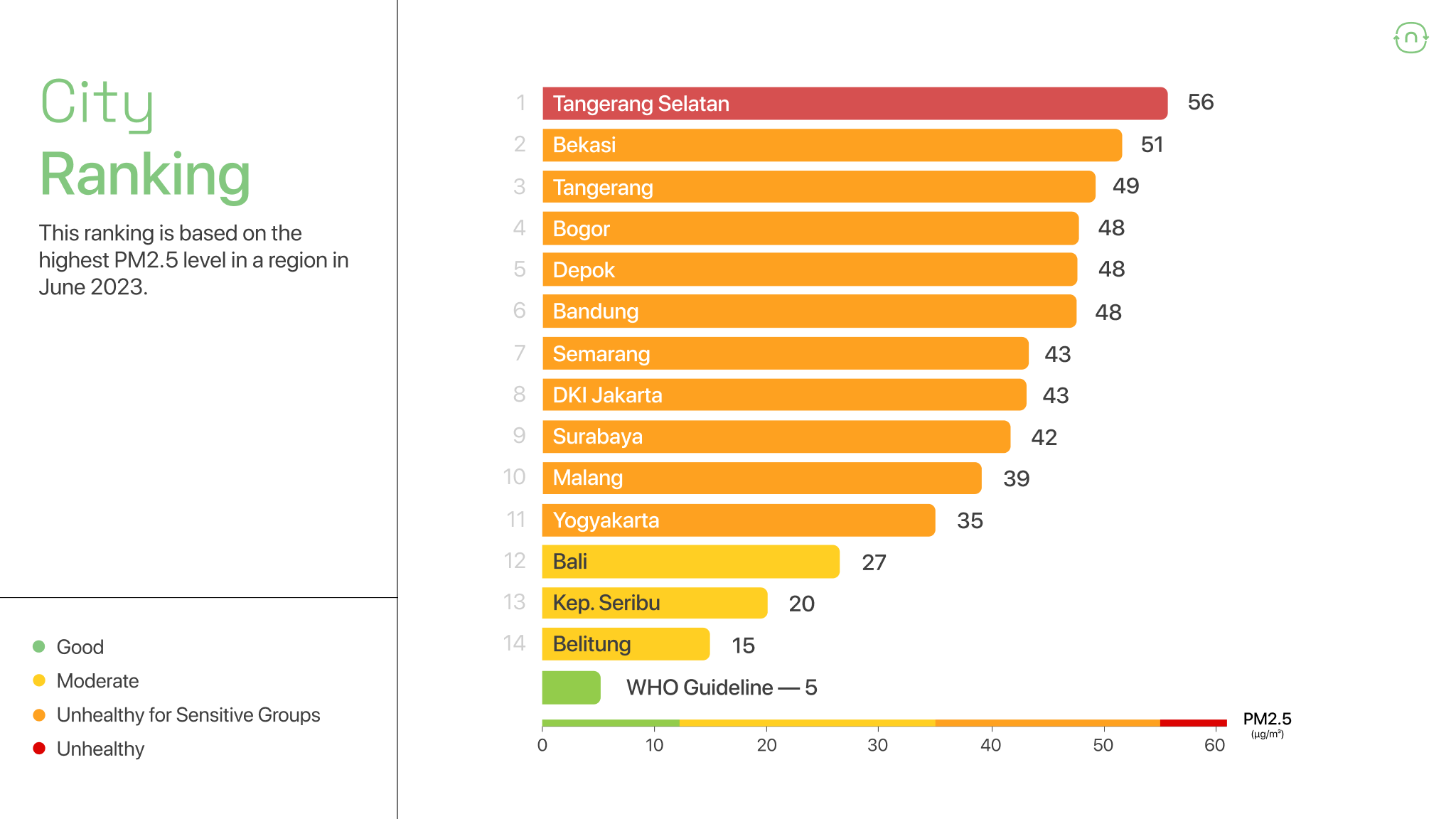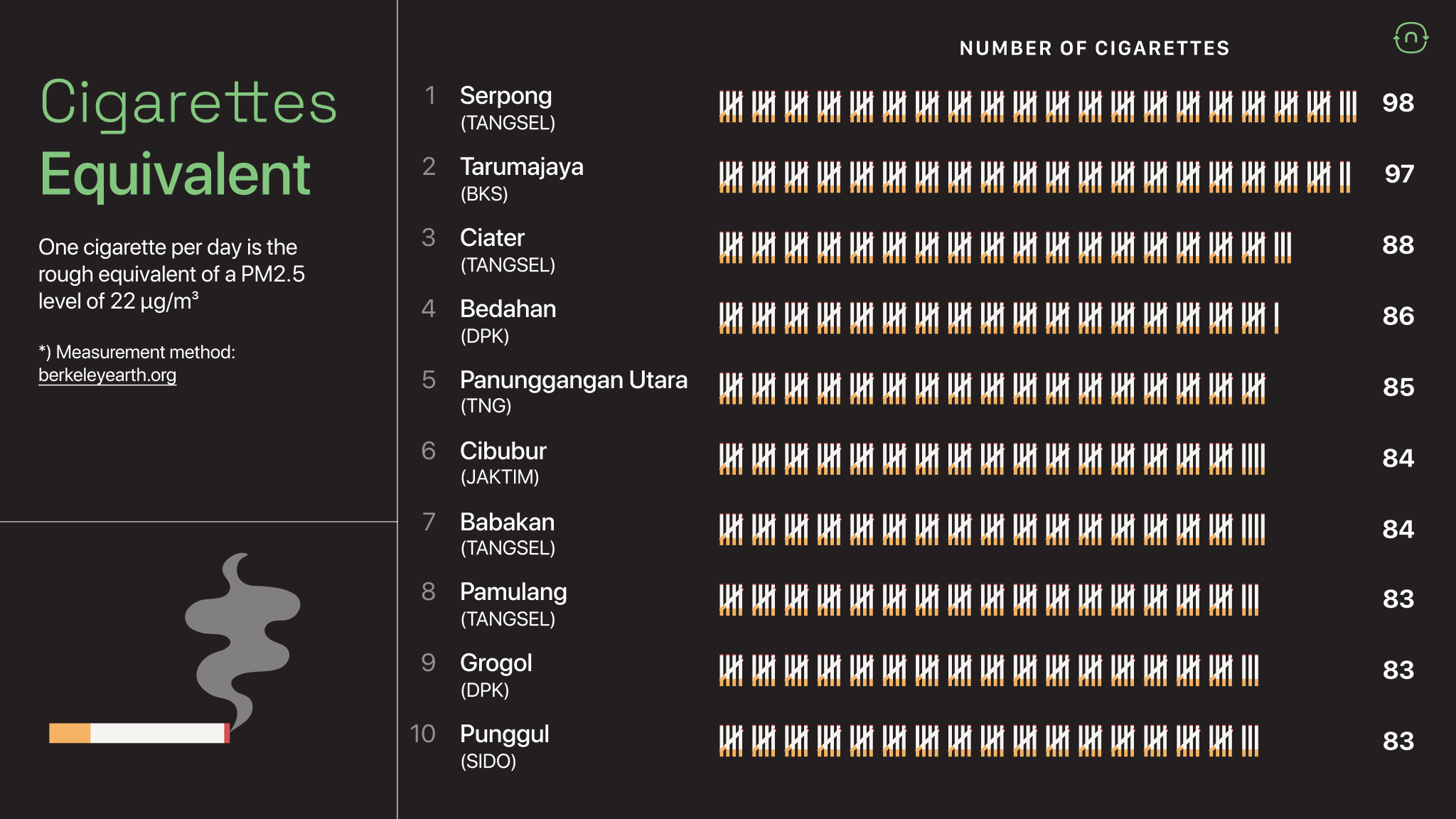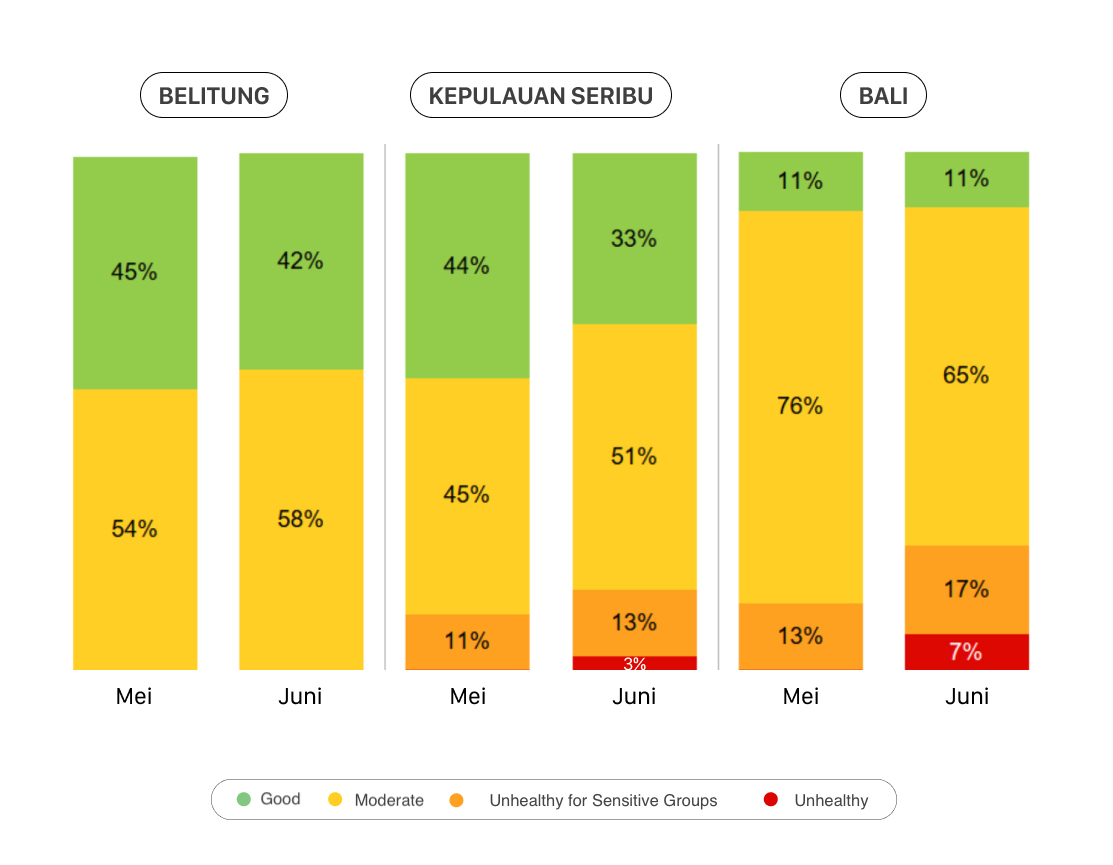June’s Air Quality: A Grim Reminder of the Ongoing Bad Air Season
The month of June in Indonesia brings with it a continued period of poor air quality, casting a somber shadow over residents in various cities. Following the relentless onslaught of high pollution levels in May, it is disheartening to note that the air quality has not shown significant signs of improvement. Even regions known for their typically pristine air have experienced a decline in June.
On social media platforms, concerned residents (particularly parents) express their worries about respiratory health issues. The correlation between the dismal air quality and the persistently high levels of pollution leads us to a conclusive realization: air pollution is the culprit behind these woes.
Who bears the crown of pollution in June?
The answer is South Tangerang, it’s reigning as the champion with the highest pollution level recorded last month—an alarming PM2.5 level of 56 µg/m3, surpassing the WHO annual exposure limit by a staggering 11 times.
Within the nafas sensor network, Serpong emerges as the most polluted location, showcasing an average PM2.5 level of 72 µg/m3. However, it is in Ciater, South Tangerang, where the most concerning deterioration of air quality is observed. In May, Ciater ranked ninth among the most polluted locations, but in June, it soared to the third position with a PM2.5 level of 64 µg/m3, equivalent to 15 times the WHO exposure limit! 😷
How poor the air quality in your area?
Inhaling air with an average PM2.5 level of 22 µg/m3 in a single day is akin to smoking a cigarette. How does your place of residence fare
The mentioned data reveals that the air quality in Serpong last June was equal to smoking 98 cigarettes! The unfortunate residents of Tarumajaya face a similar fate, inhaling air equivalent to smoking 97 cigarettes within a month. 😱 This alarming revelation heightens concern as it indicates that all residents, irrespective of age, are forced to breathe the same detrimental air.
Shifting our focus to West Java, we encounter Bandung, the second most polluted city following the sprawling urban conglomeration of Jabodetabek. On average, the air quality in Bandung is 12% worse than that in Jakarta. This begs the question: Were there no areas boasting relatively better air quality in June?
Thankfully, there were a few cities that bring hope amidst the gloom, namely Bali, the Thousand Islands, and Belitung. However, even in these havens, instances of unhealthy air quality increased compared to their usual levels.
The real danger of air pollution
Now, let us delve into the tangible health impacts wrought by pollution. Residents are earnestly urged to exercise vigilance, as tangible threats to our health loom large, particularly for children and individuals afflicted with asthma and allergies. The results of a collaborative study conducted by a respiratory health organization and a local telemedicine company in Jabodetabek from June to August 2022 have unveiled a disconcerting revelation:
Instances of asthma attack-related consultations surged twofold within a span of 10-17 hours when PM2.5 levels were categorized as "Unhealthy" for Sensitive Groups.
While it is true that the sources of air pollution are manifold and evading them entirely is a futile endeavor, we, as residents of polluted cities, can take proactive steps to mitigate our exposure to air pollution. Here are a few simple yet effective measures we can adopt:
- Download the nafas app and regularly check the air quality before engaging in outdoor activities.
- Wear a respirator mask (N95/ KN95) when venturing outside.
- Seal off ventilation when pollution levels are high. Consider investing in an air purifier equipped with HEPA filters and activate it during periods of worsening air quality.
- Refer to the comprehensive recommendations provided by the respiratory application, tailored to real-time air quality conditions.
🔗 Download the full report here 👉 https://bit.ly/NBDJuni23